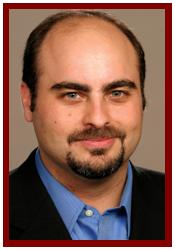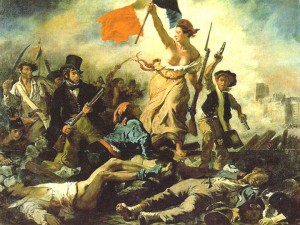 Last April, the organizers of the annual “College-palooza” at the University of Pennsylvania invited me to participate in their series of “one minute lectures,” where professors had one minute to crystallize their approach to their subjects. I figured that it would be a challenge to say anything coherent in only a minute, but at the same time found the experience to be quite stimulating as I tried to make a point that I often hint at in my undergraduate lectures.
Last April, the organizers of the annual “College-palooza” at the University of Pennsylvania invited me to participate in their series of “one minute lectures,” where professors had one minute to crystallize their approach to their subjects. I figured that it would be a challenge to say anything coherent in only a minute, but at the same time found the experience to be quite stimulating as I tried to make a point that I often hint at in my undergraduate lectures.
This is the complete text:
“I am often asked: What does History teach us?
History doesn’t teach us anything. Historians do. History is not some independent abstraction; it is the attempt by human beings to make sense of the past.
 Viewing history with the ironic distance of the hip moviegoer breeds a dangerous sense of superiority over historical actors, and the equally dangerous assumption that simply identifying past mistakes will grant mastery over the present and guarantee future success. Remembering the human dimension can help us avoid those dangers.
Viewing history with the ironic distance of the hip moviegoer breeds a dangerous sense of superiority over historical actors, and the equally dangerous assumption that simply identifying past mistakes will grant mastery over the present and guarantee future success. Remembering the human dimension can help us avoid those dangers.
Historical actors are human beings, not necessarily any smarter or dumber than we are. Their weaknesses are ours: the limitations of individual perception and the inability to see the future.
None of this means we should let historical actors off the hook for their mistakes, or resign ourselves to an inability to learn from the past. It means we study History not in search of mastery, but rather to develop our sense of humility. History is not an upward march from a benighted past to an enlightened present, but the story of humanity’s eternal struggle against our limitations. Whatever nobility there is to be found in our lives springs not from smug pride over mastering the past, but from the humble awareness that all of us must continue the struggle if we hope to create a better future.”
[Yes, there is a real limit to how much you can say in one minute!]
I firmly believe all that I said last year, but I also think there are larger implications that need further elaboration.
To put my cards on the table right away, I believe there is a real and growing tension between how historians view what they do and how the broader public views History, and historians need to work harder to maintain their important public role.
This is not the place for another jeremiad about the historical ignorance of the general population. People are ignorant about a great variety of subjects, in varying measures, so historians should not consider themselves either immune from ignorance or somehow superior to others. Being an educator means being aware of one’s own ignorance as well as that of others, and taking up the challenge to combat it whenever possible in the areas where one can help, even if one realizes that there is no finish line when ignorance will be decisively defeated.
What truly worries me is not ignorance, but selective knowledge. For many educated people (in universities as well as politics and other professions) History is a grab bag of case studies or potted stories used to highlight a point or justify a prejudice. Such an approach can be catastrophic when the selector gets the facts wrong, of course. But it is not much better when the facts are correct but the case is torn from its context, with the implication that a story from any time or place can be reduced to a simple lesson and applied to our own time. Of course we can learn a great many things from the people and events from the past. Contrary to what some may say, however, the people and events of the past do not speak for themselves. Anyone who cares about historical understanding should want to be sure that the past is presented and interpreted with skill, clarity, and intellectual honesty.
I realize that there are several issues at play here: the relationship of past to present, the tension between seeking broad historical understanding and the desire for a usable past, the uneasy relationship between academic and popular History, or more generally between historical study as an academic discipline and History as a tool of civic education. Each of them has great potential as a blog post on their own, and none can be resolved simply.
My point today is to emphasize the responsibility of the professional historian as a citizen in our current society. This means being a regular and enthusiastic contributor to popular discussions, not just as the “killjoy” who smugly punctures popular myths, but as an engaged citizen who wants to share knowledge and expertise. Humility goes both ways—as historians encourage the public to eschew simple-minded lessons and to embrace the complexity of context, they should themselves understand that they have not cornered the market on truth either. Historians should offer the context missing from many public discussions, but should not just be reactive. Historians need to seek out opportunities to discuss their own ongoing work with broader audiences, in public forums—including of course blogs—as well as popular publications. They should also cultivate a style and approach that will be inviting to non-specialists, rather than throwing up ramparts of jargon and obscurity.
Therein lies the rub. The attainment of academic credentials, and the preservation of academic employment, each encourage specialization over general appeal. There is no easy answer there either, but historians need to struggle against the habits and practices that threaten to isolate them.
History is a process, a three-way conversation between the past, the historian, and the public. The conversation is going on all the time, and if historians do not accept their role, someone else will take it up. Historians need to get off the sidelines, and get into the arena.









Leave a Reply